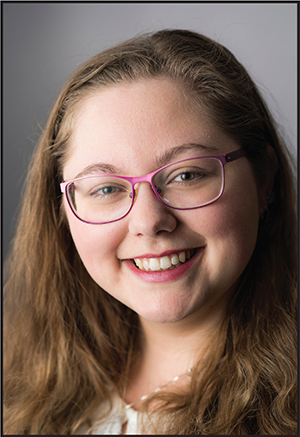Lorisia MacLeod | Movers & Shakers 2022—Advocates
Initially hesitant to pursue librarianship, Lorisia MacLeod realized early in her career that the field would allow her to combine her interests in leadership, information, people, and advocacy—and has found ample opportunity to incorporate them all.
 |
CURRENT POSITIONLearning Services Librarian, Alberta Library, Edmonton, Canada DEGREEMLIS, University of Alberta School of Library and Information Studies, Canada, 2018 FAST FACTMacLeod is a third-generation library worker and second-generation Indigenous librarian. FOLLOW@LorisiaMacLeod; bit.ly/IndigenousCitations Photo courtesy of University of Alberta Libraries |
Indigenous Citations
Initially hesitant to pursue librarianship, Lorisia MacLeod realized early in her career that the field would allow her to combine her interests in leadership, information, people, and advocacy—and has found ample opportunity to incorporate them all.
While conducting research as an undergraduate, MacLeod—a member of the James Smith Cree Nation—noticed that under conventional academic citation styles, Indigenous elders could not be formally cited as a source unless their words had been recorded in written form. Any oral teachings delivered under Indigenous protocol were noted in an in-text citation as “personal communication”—an insufficient way to define a complex information system.
Giving Indigenous teachings the same weight as a phone call or Tweet didn’t sit well with MacLeod. While Instruction Librarian at Edmonton’s NorQuest College, she developed a set of citation templates for Indigenous oral histories and teachings in partnership with the college’s Indigenous Student Centre. The new fields, offered in American Psychological Association and Modern Language Association citation styles, include the Indigenous community member’s name, their tribe or nation, their treaty territory, where they currently live, and the subject and date.
“A big part of it comes down to representation and respect,” she says. “Representation, because if folks are cited this way, it means that I can find my nation’s voices in the library”—searches generally turn up news articles, not the rich representation of knowledge holders, storytellers, and leaders she knows exist. Respect, she adds, means understanding Indigenous knowledge as stewardship rather than ownership; the citation fields “empower the Indigenous perspective of viewing relationships as key and connected to knowledges, whether those relationships are with a nation, the land, or treaties.” In addition, specific identifiers help break down the pan-Indigenous stereotype that all nations have the same teachings and knowledge.
The templates are currently used at more than 25 institutions across North America. Recently, MacLeod has been creating and sharing 3-D printed syllabics—letterforms used in several Indigenous Canadian languages—as resources for Indigenous language learners.
Initiatives such as the American Library Association’s Spectrum Scholarship Program—her father, also a librarian, was a Spectrum Scholar as well—and the Association of Research Libraries’ Kaleidoscope Program helped her develop leadership skills and provided a support system. She recently became chair of the Canadian Federation of Library Associations/Fédération Canadienne des Associations de Bibliothèques, and looks forward to helping further public policy and advocacy efforts among Canada’s libraries.
RELATED
ALREADY A SUBSCRIBER? LOG IN
We are currently offering this content for free. Sign up now to activate your personal profile, where you can save articles for future viewing










Add Comment :-
Comment Policy: